When she was seven, Michella Bredahl began taking pictures of her mother. The Danish photographer and filmmaker grew up in Høje Gladsaxe, a large social housing complex outside of Copenhagen. “My mum was not well, so she spent a lot of time in bed,” she says. “And she used to ask me to photograph her… I would use this snapshot camera and go to the bedroom and take pictures of her and my sister.” A bedroom is many things: private sanctum, place of refuge, articulation of personality (whether accurate or aspiring). It houses our sleeping hours and frequently hosts us at our most revealing, witness to sickness, sex, undress, mess, the physical tangles and reassurances of family.
In Michella’s first photography book, Love Me Again, published this October by Loose Joints, bedrooms recur throughout. Other domestic spaces appear — the calm of the bathroom, the semi-organised chaos of the living room — but it’s the bedroom where most of her subjects are found. There, they recline in their underwear, talking on the phone. Some soothe children and play with pets. Others kiss lovers, check texts, or merely sit, preoccupied with something beyond the camera’s scope. The rooms are as varied as those they hold. Several have the pristine appearance of a hotel, but most allude to life’s ordinary disarray, clothes flung on the floor and beds unmade.
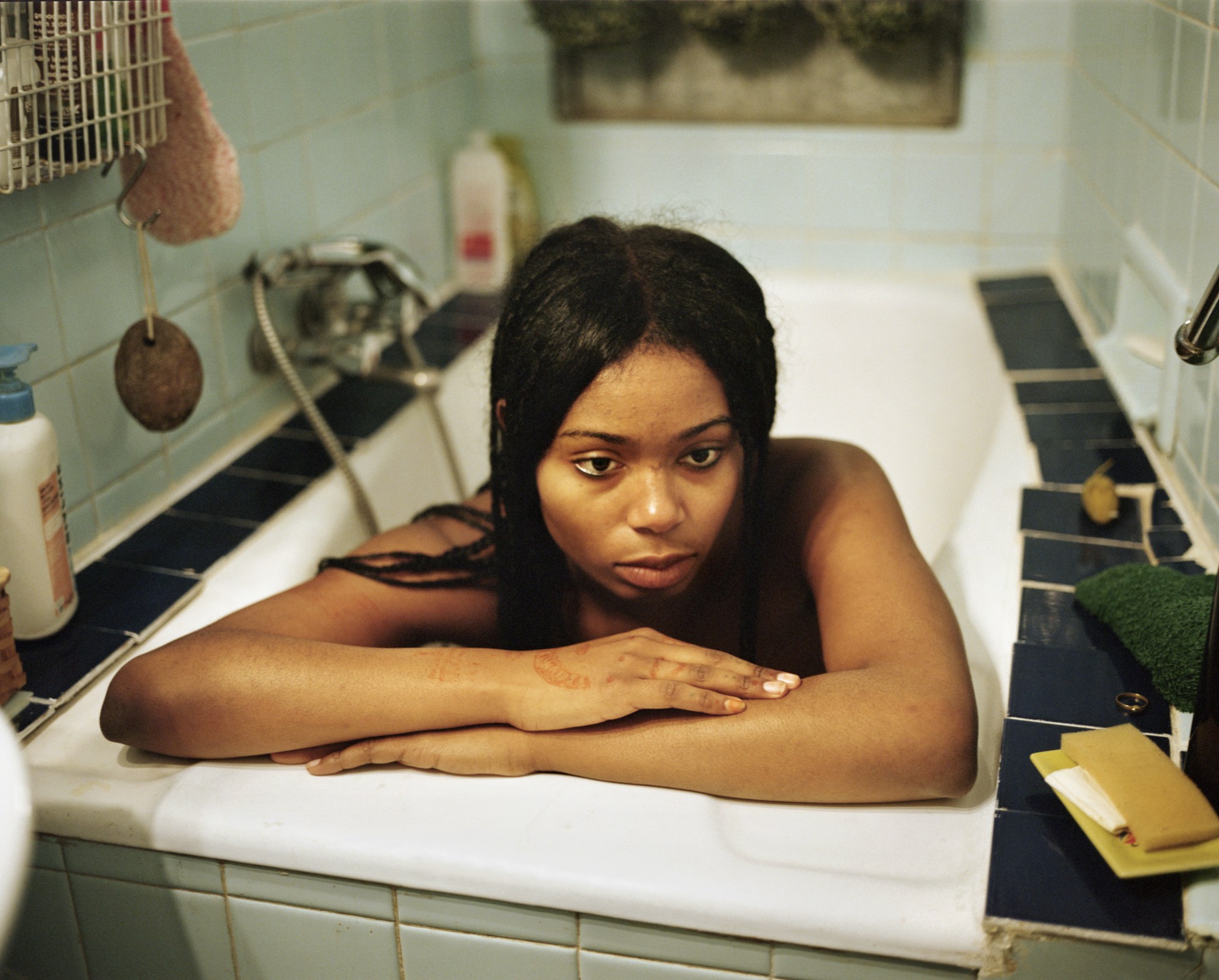
Often, a bedroom is where we go to escape being seen. But the subtle power of Michella’s portraiture lies in the bond of trust between photographer and those being photographed — the accepted presence of an all-seeing eye in these intimate spaces. Having begun with her mother, she continued photographing close to home. These pictures, created over an extended period, largely feature friends and chosen family. They are collaborations, the result of an impulse — photographing those around her as a teenager for the sake of it — given direction and time to develop.
“I don’t want to photograph in a studio; l want to photograph in people’s spaces,” Michella says of her style of working. “I think that Mary Ellen Mark said that the most interesting thing is reality.” Michella is au fait with the more artificial side of image-making. She was scouted as a model at a young age and quickly found fashion’s gaze not just uncomfortable but dislocating. “Being photographed all the time made me feel that what was inside and what was outside were more and more distant from each other,” she says. “There was actually a point where it was like, ‘I cannot model anymore because what people are taking pictures of is not me’.” It had two positive upshots. The first was a fine-tuned awareness of how it feels to be looked at through a lens, and what it takes to be seen as oneself rather than a cipher or projection of someone else’s vision. The second was a whole new world of photography.
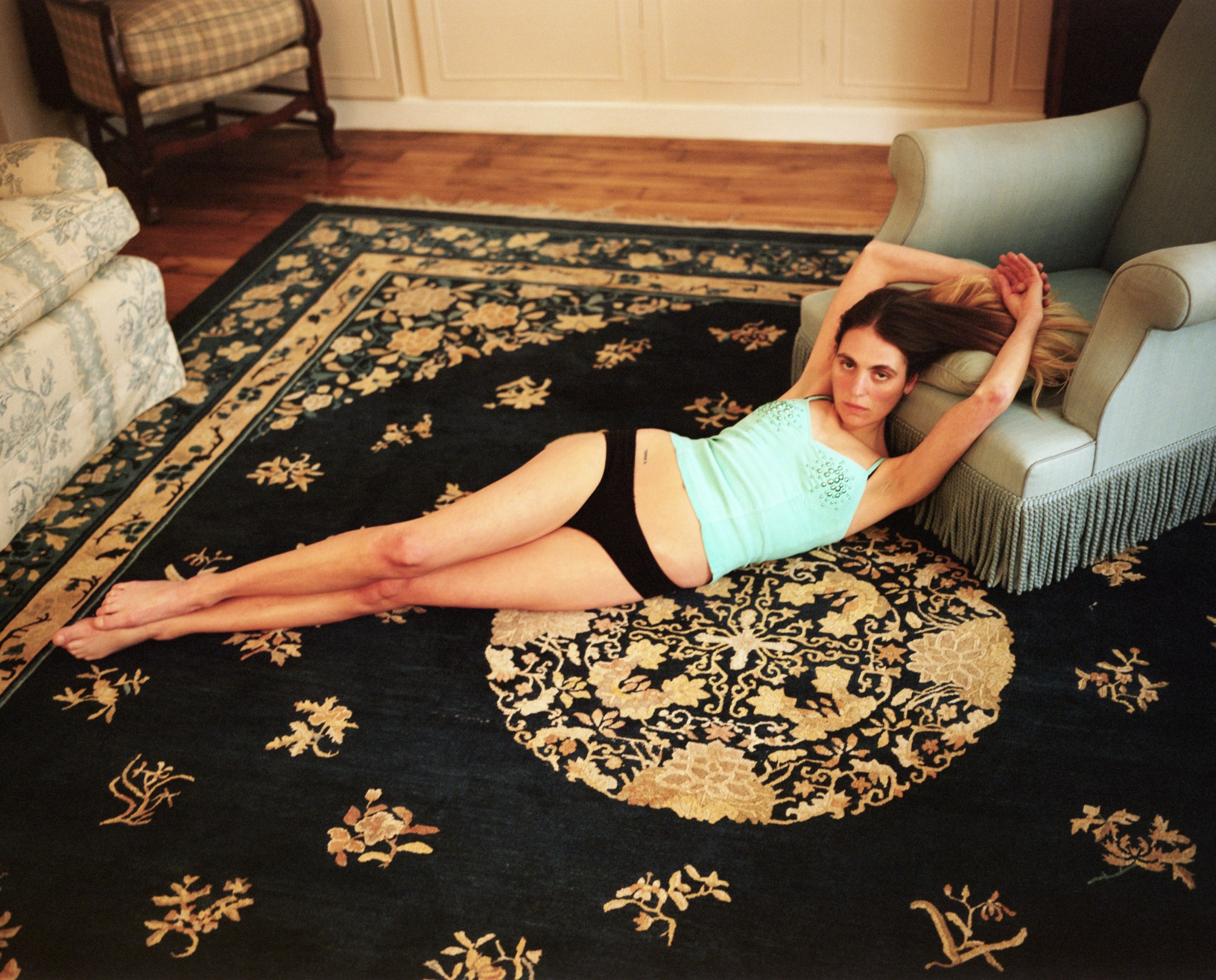
At age 21, Michella had become friends with a photographer whose working style was more personal. He photographed her at her house and took a proper interest in her ambitions. “He invited me to his place and showed me a book by Diane Arbus with these twins on the cover,” she says. “And I didn’t know who she was.” For Michella, Diane was explosive. She represented not just an arena of photography that she didn’t know existed, but a way of seeing — a commitment to the narrative possibilities of the real, in all its weirdness and candour. Michella subsequently gave herself a crash course in the history of photography via the website American Suburb X, and realised that what she had been doing for years already — photographing friends, documenting their lives — fitted intxo a rich documentary tradition going back to Corinne Day, Nan Goldin and beyond.
Love Me Again is the product of many years of work and an increasingly refined approach to portraiture. “I have a way that I photograph: a peace that my friends comment on. It’s almost spiritual… they feel like they go through some transformation because I’m really intense,” Michella says. “When I photograph like this, I’m not very aware of it.” Many of the photos gathered here weren’t taken with the intention of showing them to a wider audience: pregnant friends or nude portraits taken as experiments that the subjects loved enough to give their blessing for them to be shared.
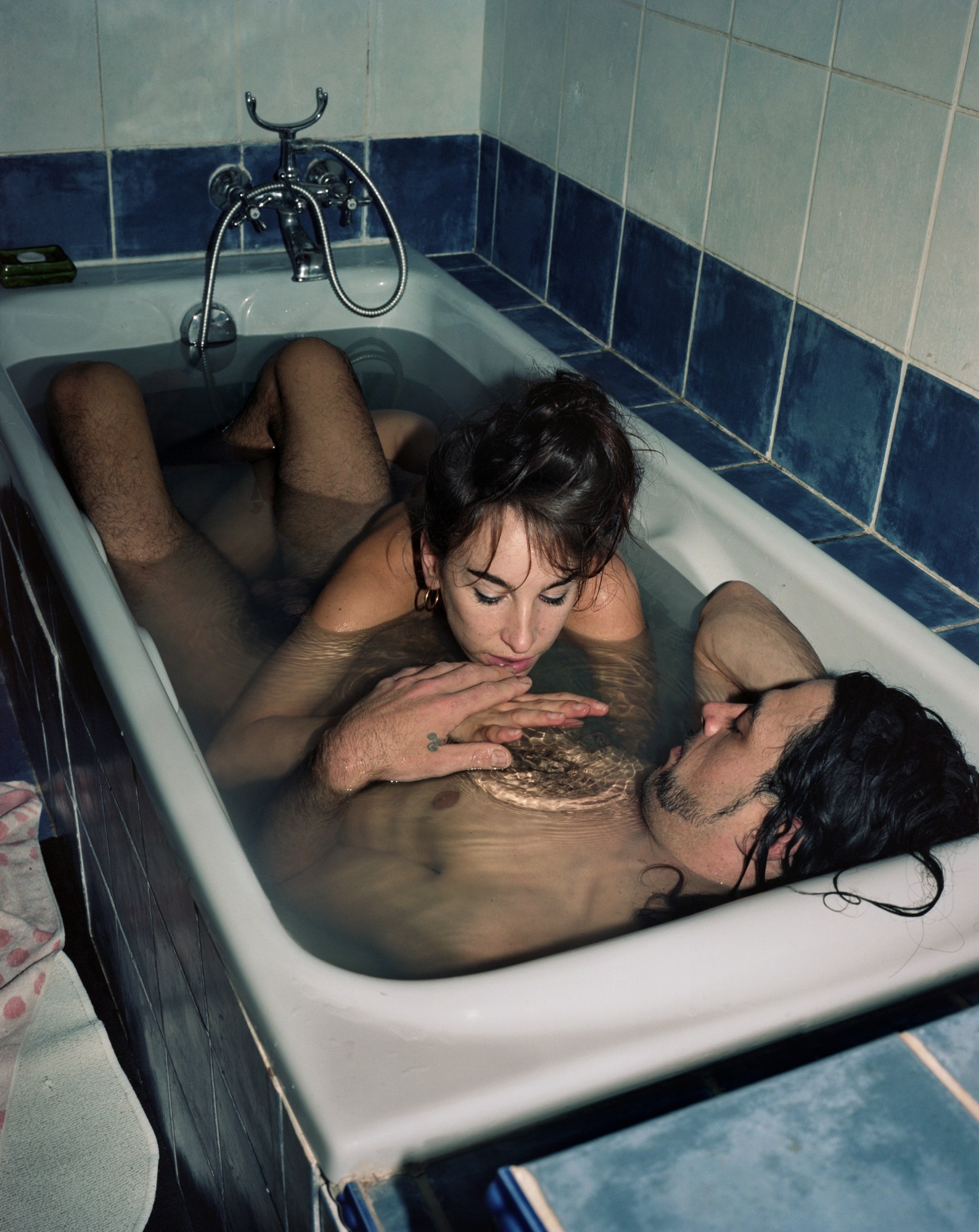
In recent years, Michella’s approach has expanded. “I’m very direct,” she says. As her confidence has grown, she has become more comfortable with asking to be invited into these private worlds. A number of the more recent portraits taken for this book were cast in New York with the help of her friends Eléonore Hendricks and Michele Mansoor, who understood Michella’s intimate vision perfectly. “Now I meet others who can somehow step into my universe,” she says. “I can now collaborate with others because I can articulate my interests and what I am looking for. The last time I was in New York, when I photographed a mother with her daughter and son, Eléonore sat next to me.”
Michella’s style is tender but robust. Although often preoccupied with domesticity and femininity, it isn’t especially girlish or soft. In places, it veers cinematic: richly composed, narrative hints found in watering eyes or a flicker of motion in a mirror. But for Michella, the most important quality is honesty. “I love this video that I found of Chantal Akerman, where she put up a camera [to] circle around in her bedroom, and she’s eating an apple… For me, it’s a masterpiece,” she says. Michella loves the capturing of time, the ability to make the mundane and fleeting permanent. “The camera caught a moment in life. And it’s so real: the light coming through the window, how her bed [was]. I’m just looking at all the details, and I’m so touched… When I photograph, I want that depth in my work.”
‘Love Me Again’ by Michella Bredahl is published by Loose Joints.
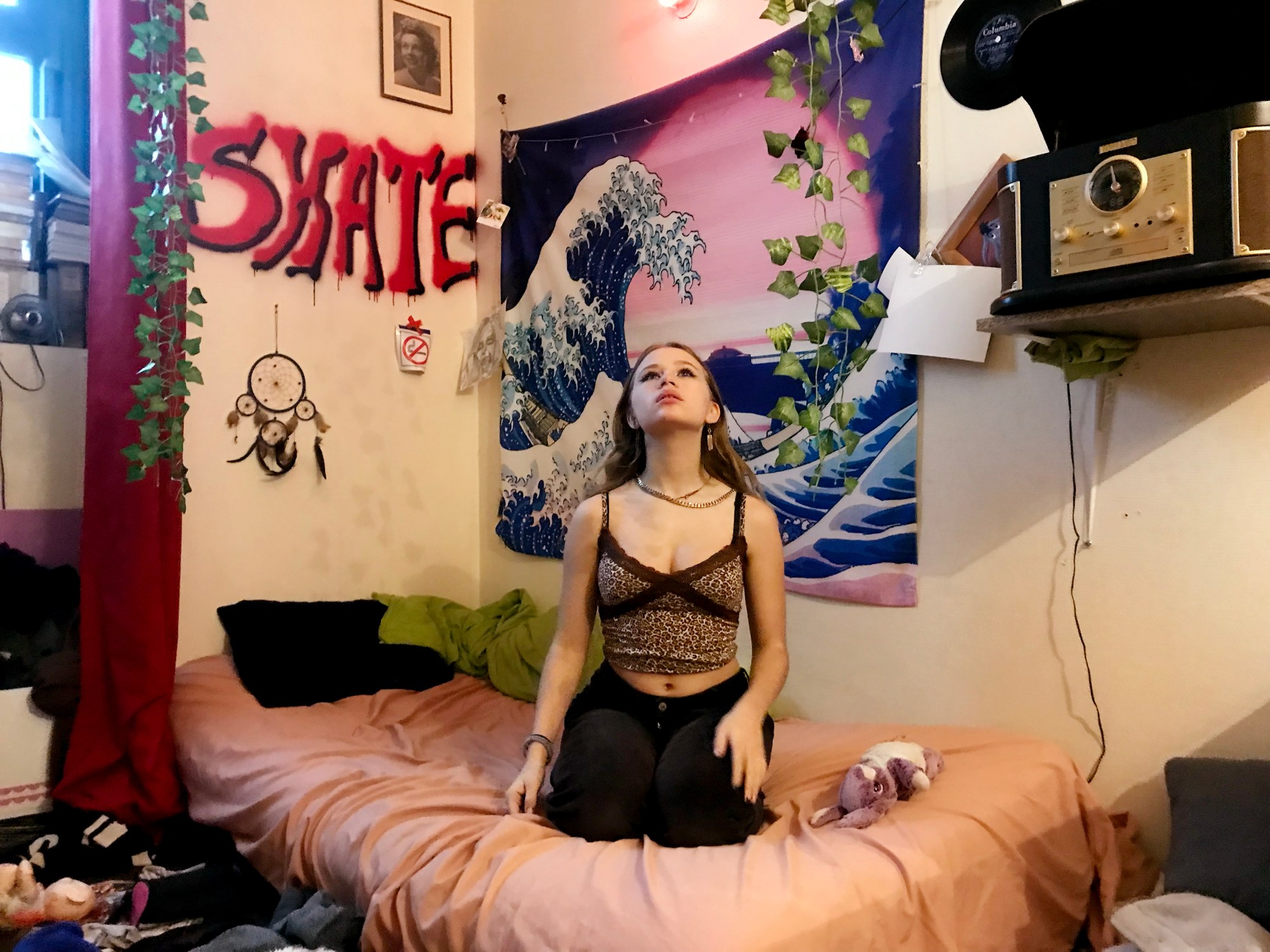
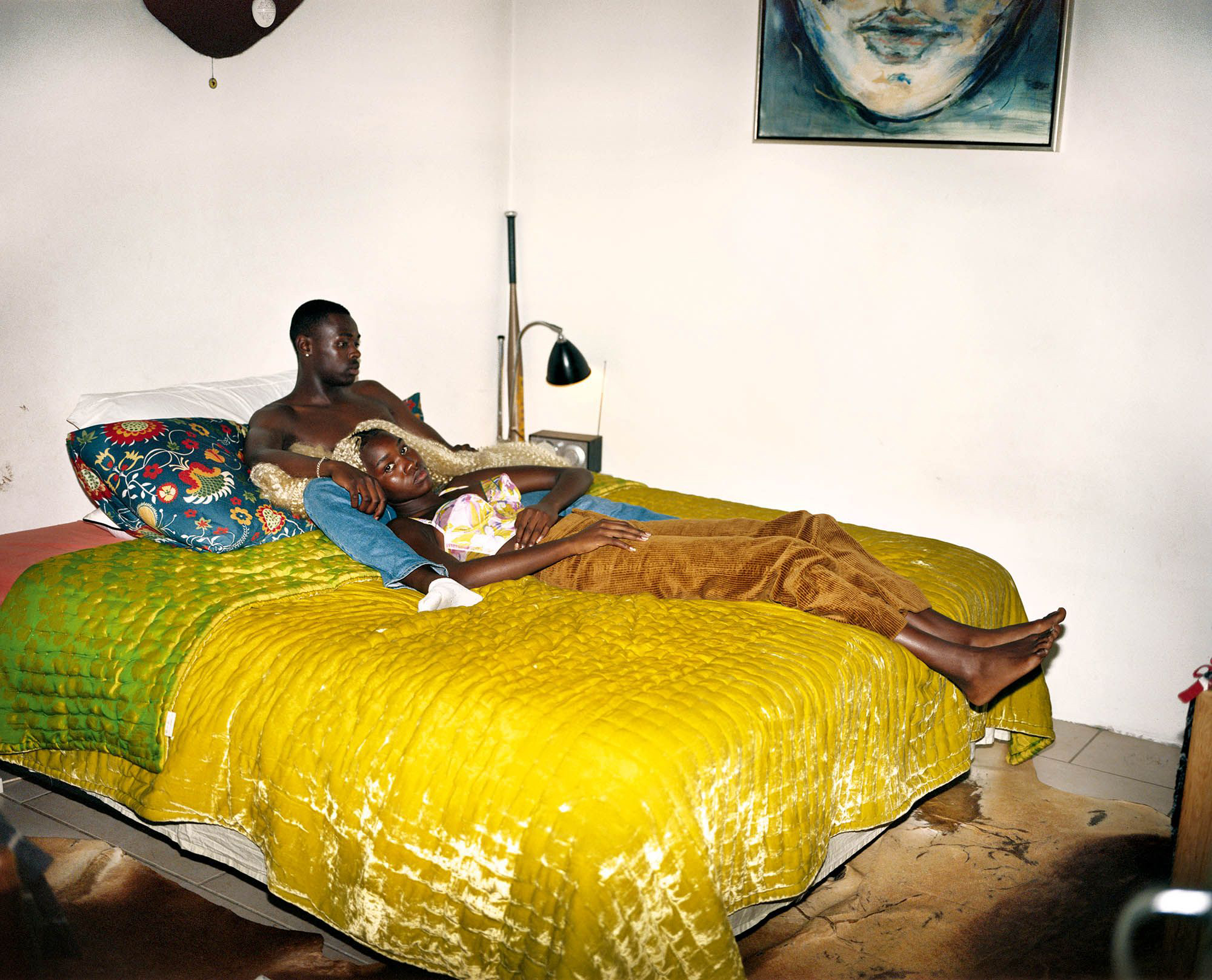
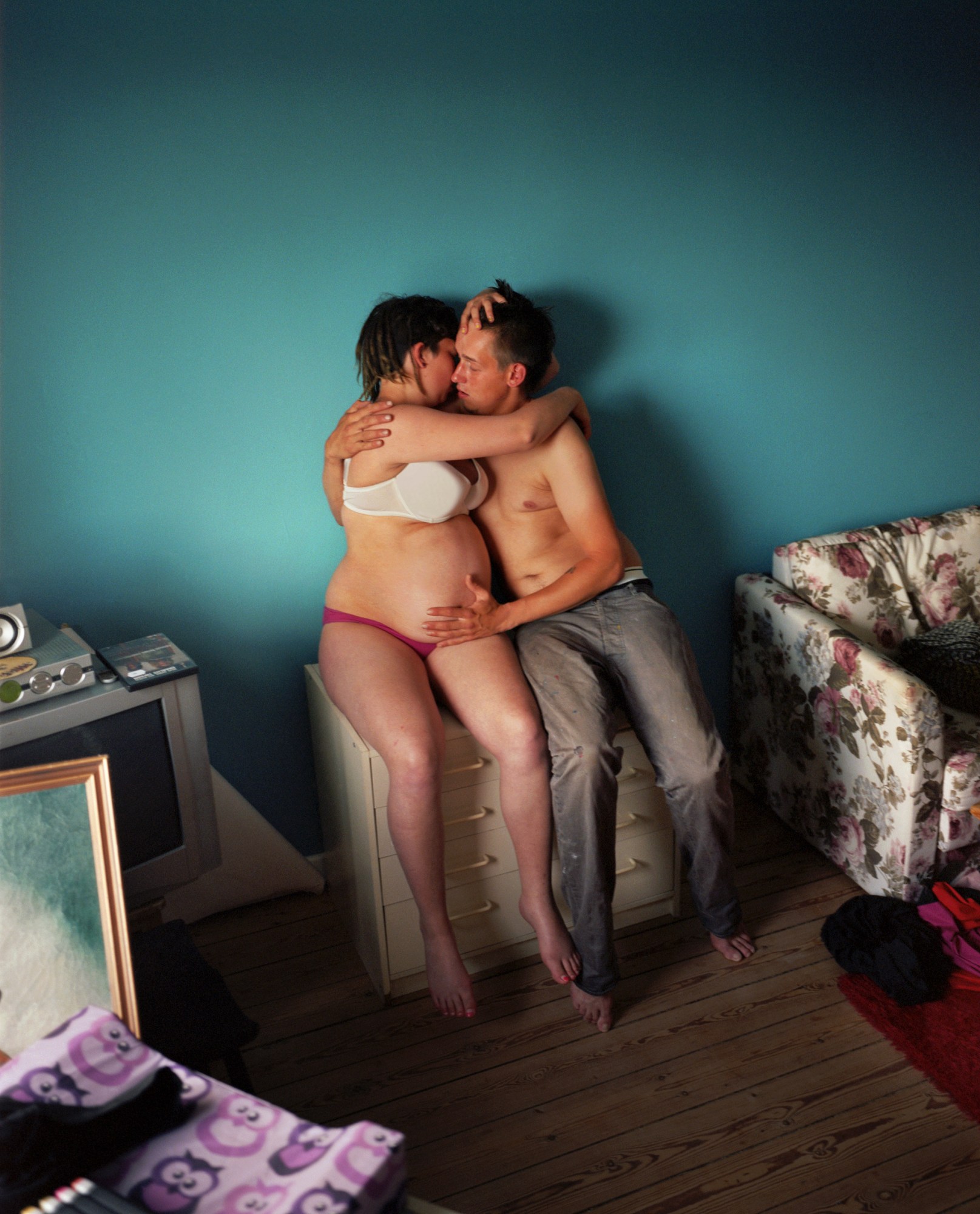
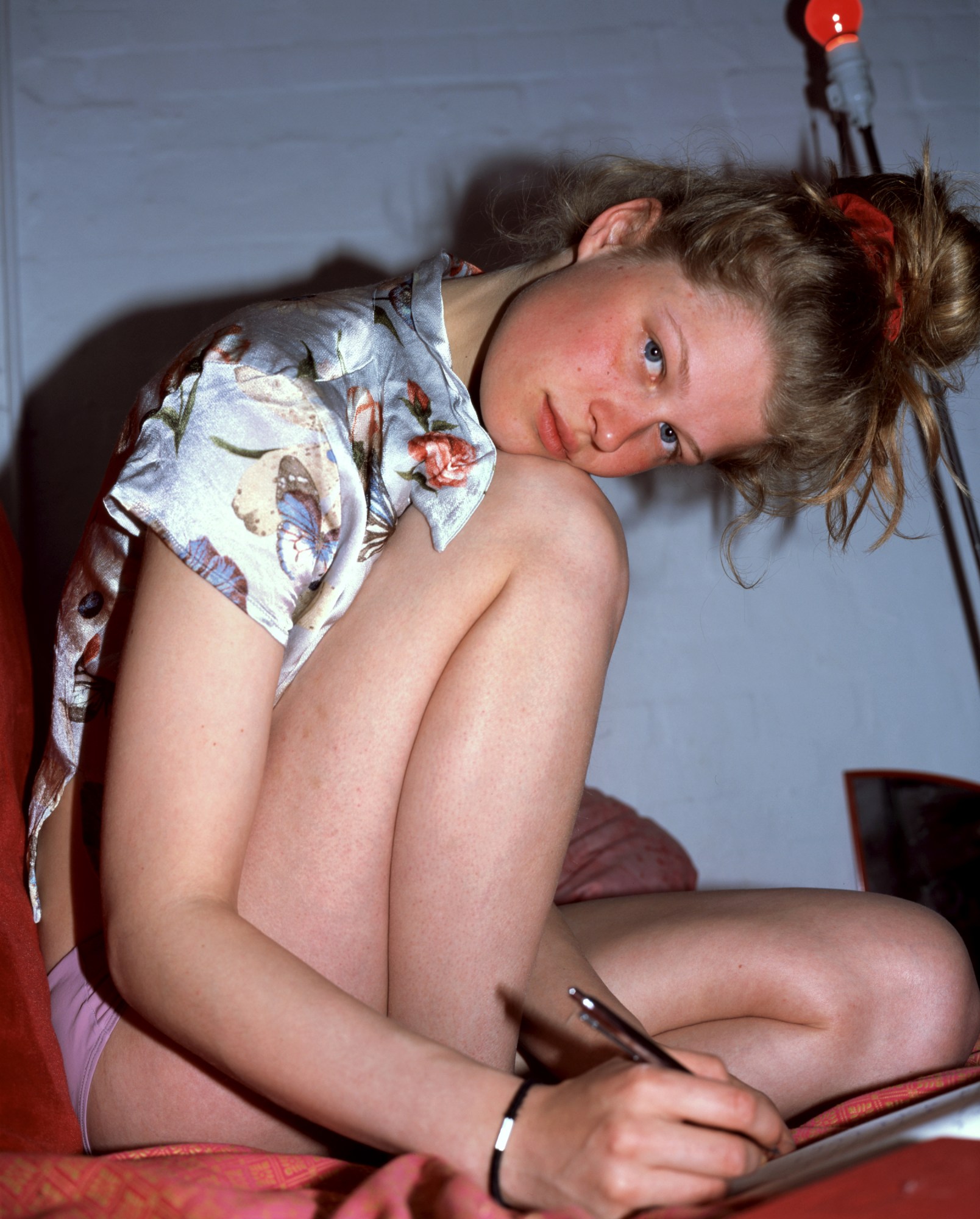
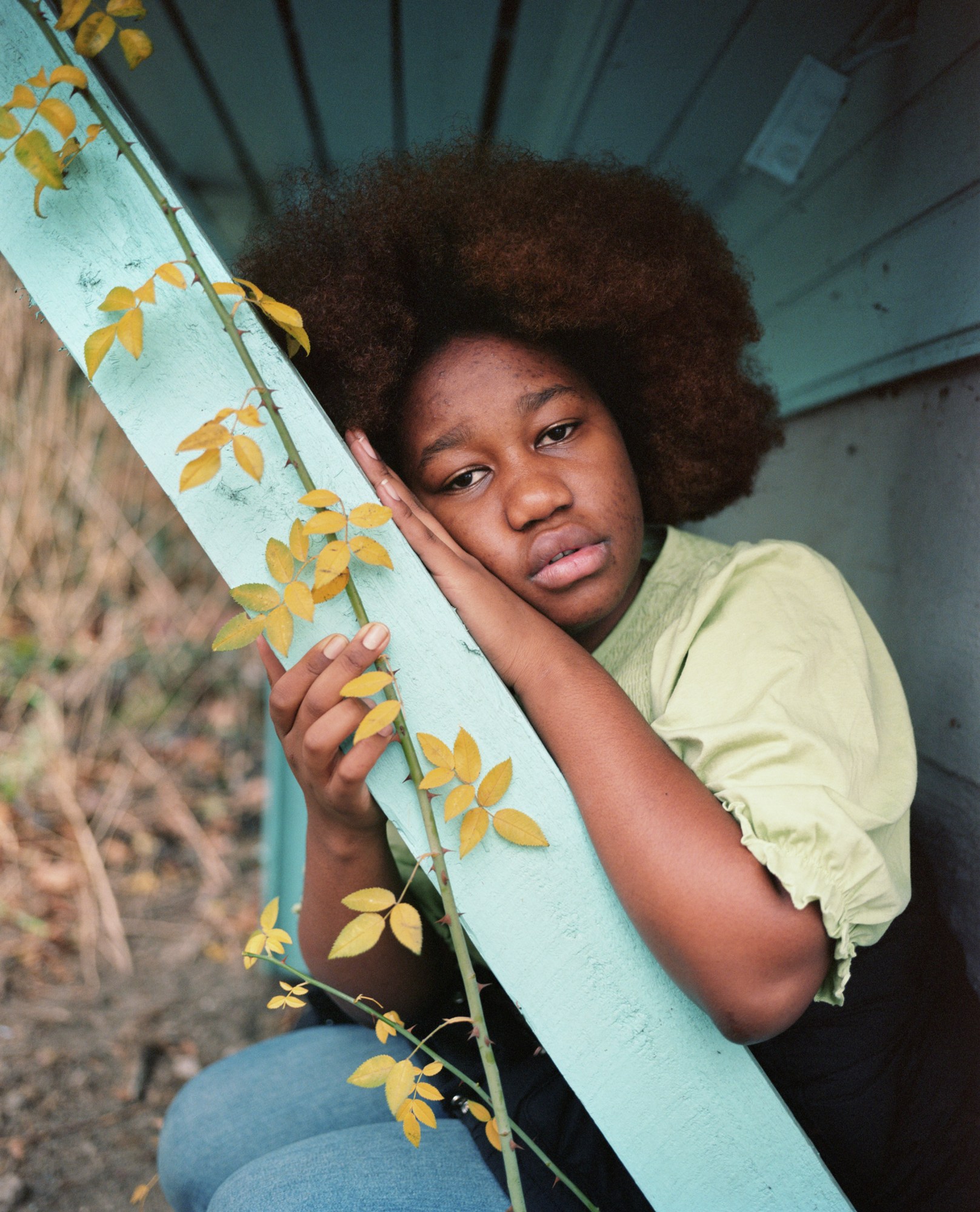
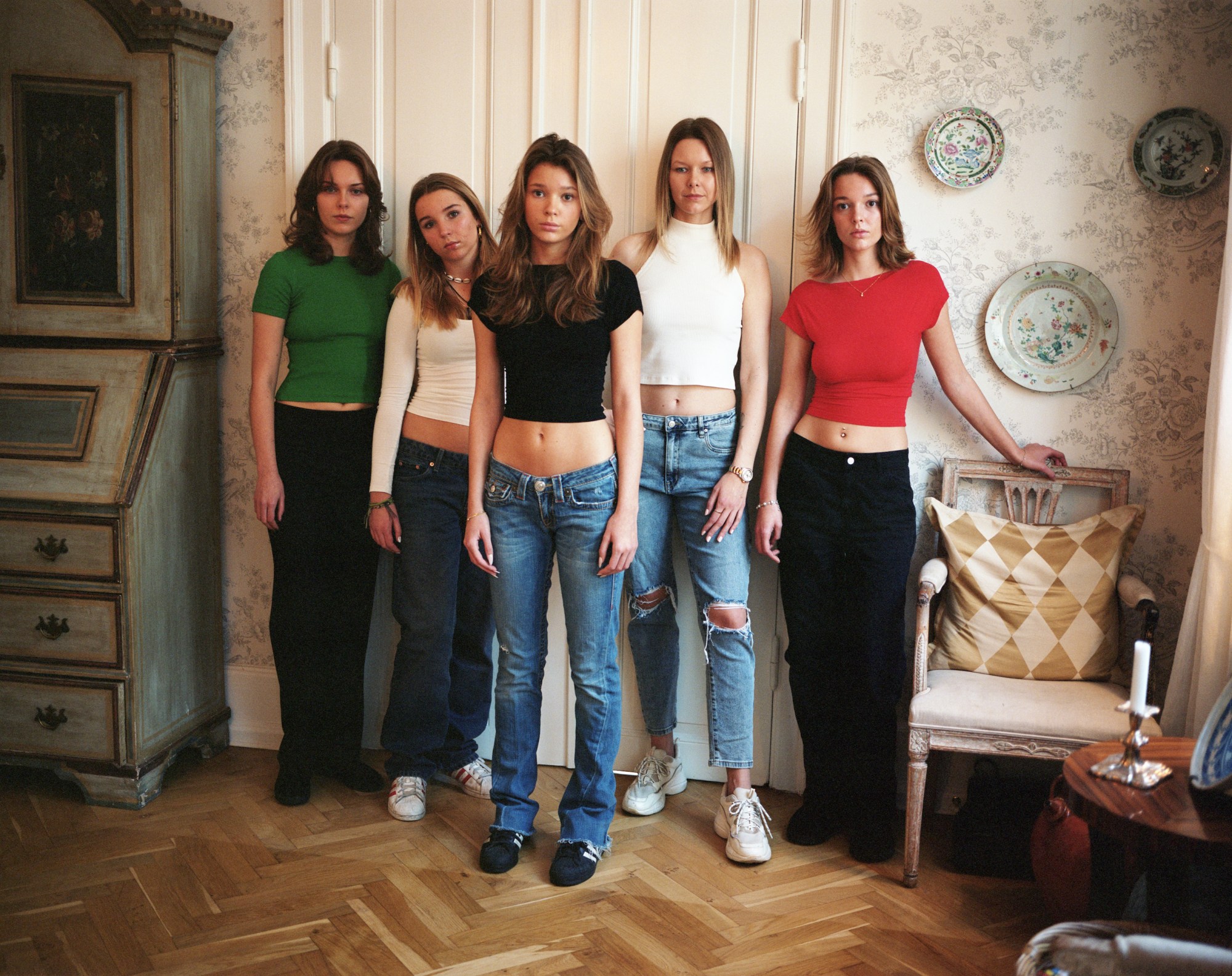
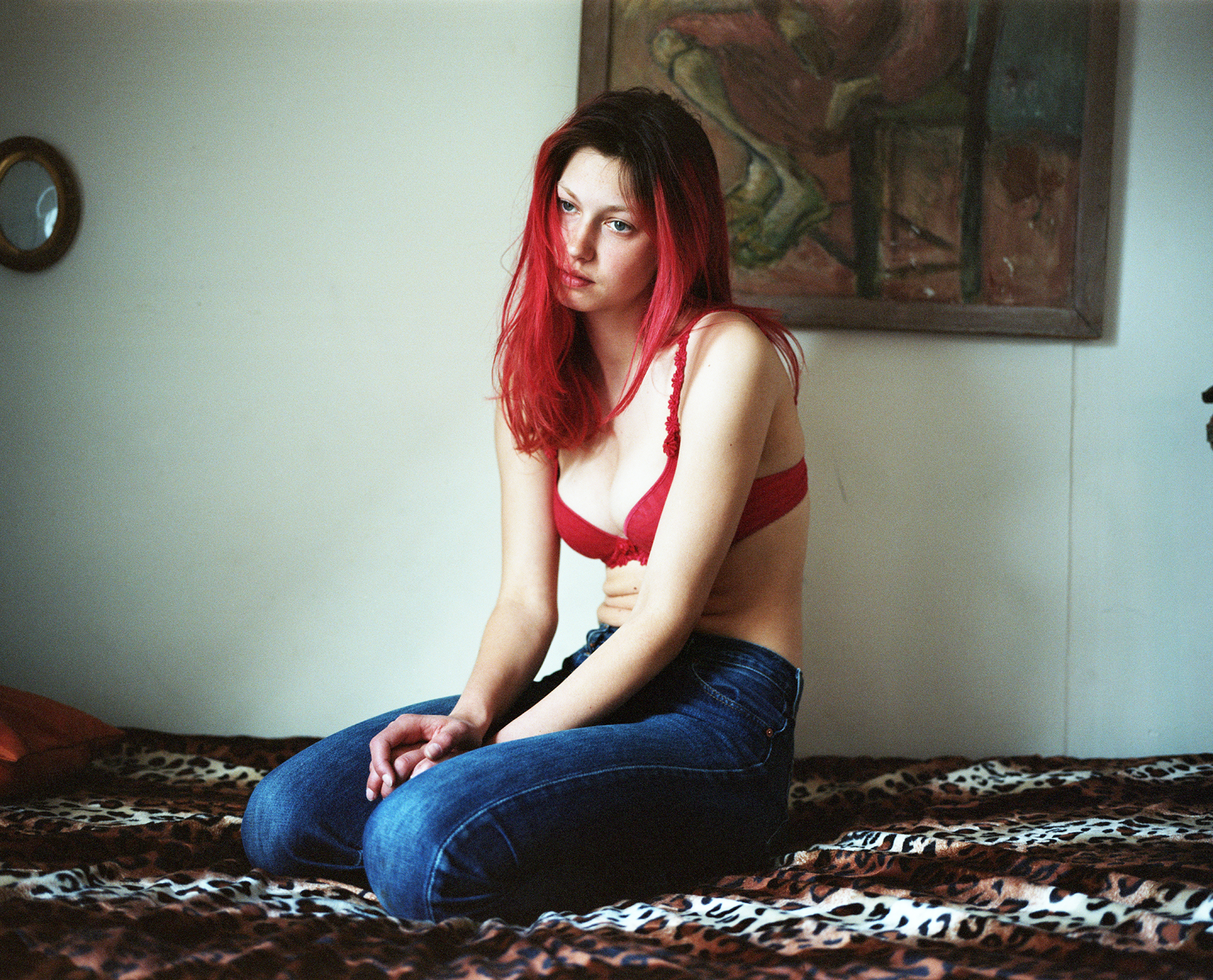
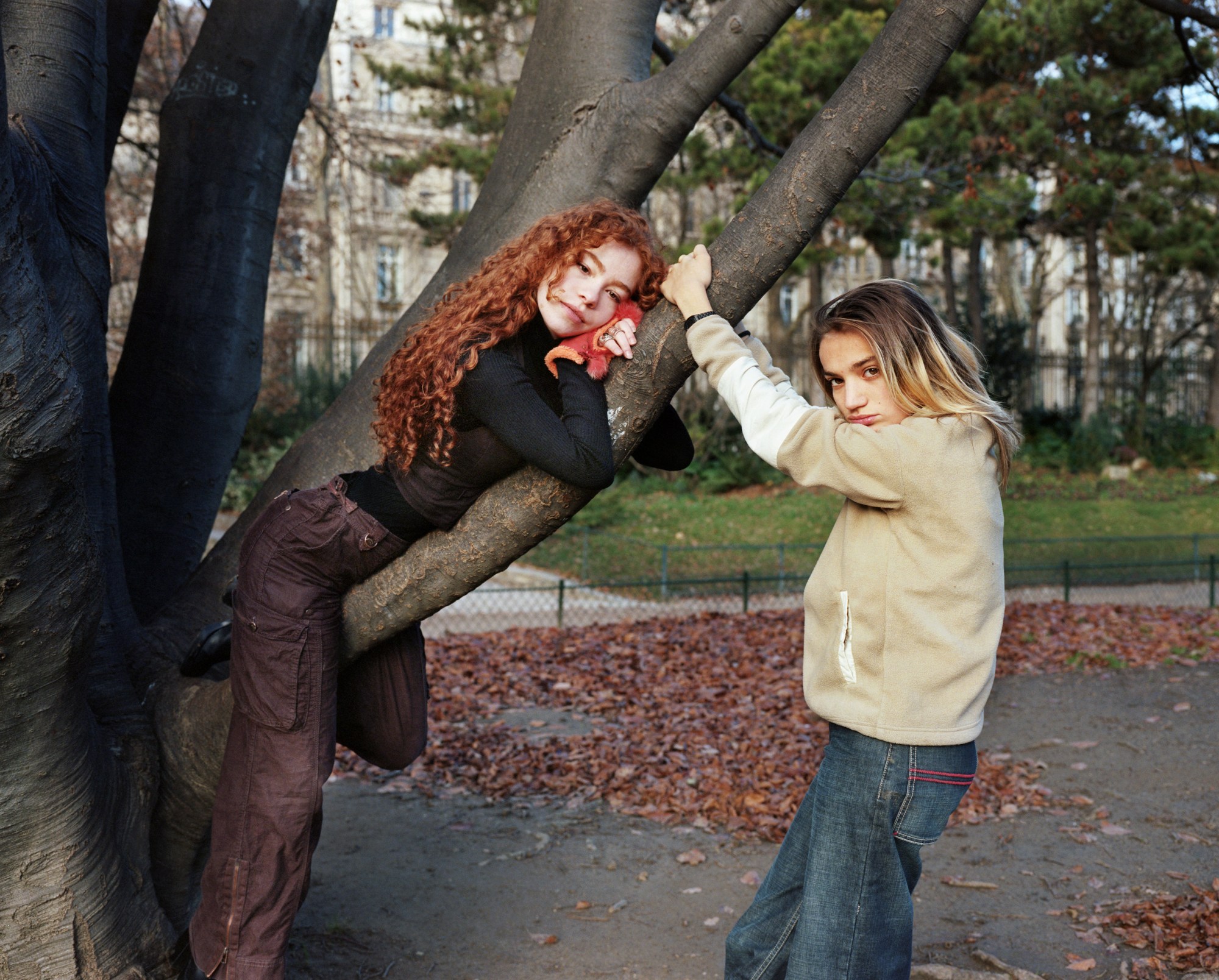
Credits
All images © Michella Bredahl 2023 courtesy Loose Joints


